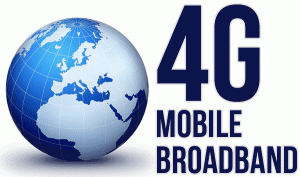The government of the United Kingdom has partnered up with the GSMA to use tech to help.
The U.K. Department for International Development (DFID) has now funded a project that will be conducted by the GSM Association (GSMA), a mobile operator group, which will use mobile technology in order to help to combat poverty among people living in developing nations.
The purpose of the use of these mobile devices will be to help to enhance the quality of life in areas of extreme poverty.
The DFID will be funding the effort as the GSMA creates and implements mobile technology that will help to batter the response in catastrophes such as natural disasters. It is also meant to help to ensure that people have access to safe drinking water and that women will be able to have access to the use of financial services. This new partnership, says the U.K. government, will be important in overcoming extreme poverty as well as gender inequality. It is also meant to “promote decent work and economic growth, innovation and infrastructure.”
The United Kingdom has been battling extreme poverty for a decade and is now adding mobile technology to boost its effectiveness.
 Nick Hurd, the international development minister, explained that the United Kingdom has placed itself “at the forefront of bringing the battle against extreme poverty into the digital era,” over the last decade. He also went on to add that “With more people in developing countries using mobiles than ever before, this partnership with the GSMA and its members will increase access to banking services, especially for women, bring access to energy to many for the first time and even vital health information.”
Nick Hurd, the international development minister, explained that the United Kingdom has placed itself “at the forefront of bringing the battle against extreme poverty into the digital era,” over the last decade. He also went on to add that “With more people in developing countries using mobiles than ever before, this partnership with the GSMA and its members will increase access to banking services, especially for women, bring access to energy to many for the first time and even vital health information.”
The hope is that this opportunity for boosting the development of mobile tech in these areas will both change and save lives, while giving women the opportunity they need to take hold of their own potential. This will allow those economies to experience meaningful growth and will make it possible for Britain to establish trade with them.
Mobile technology provides an affordable way to bring communication and tools within reach of those who need it most.

 Data from the study suggested that the world economy saw a $3.1 trillion shot in the arm from the mobile industry. This indicates that the share of the global GDP representing that industry is a massive 4.2 percent.
Data from the study suggested that the world economy saw a $3.1 trillion shot in the arm from the mobile industry. This indicates that the share of the global GDP representing that industry is a massive 4.2 percent.